Loyalists 'left behind' since Good Friday Agreement
- Published
The initiative was timed to coincide with the 21st anniversary of the loyalist ceasefire in October 1994.
Loyalists were left behind economically and ignored politically since the Good Friday Agreement, Tony Blair's former chief of staff has said.
Jonathan Powell was speaking at the launch of a new loyalist community council on Tuesday.
It has the backing of the three main loyalist paramilitary groups, the UDA, the UVF and the Red Hand Commando.
They said they are "re-committing" to the 1998 Agreement and "eschew all violence and criminality".
Reaction to loyalist initiative
According to the book Lost Lives, between 1966 and 1999, the UVF and an affiliate group, the Red Hand Commando, killed 547 people.
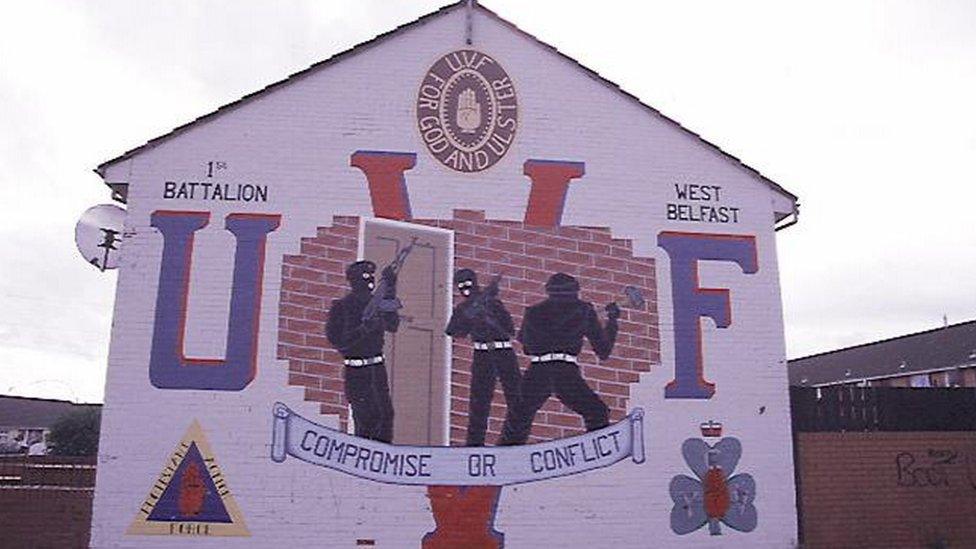
The new council has the backing of the three main loyalist paramilitary groups, the UDA, the UVF and the Red Hand Commando
The launch of the council had been timed to coincide with the 21st anniversary of the loyalist ceasefire in October 1994.
More than 50 people have been killed by loyalist paramilitary groups since their ceasefires.
The vast majority of those were Protestants. Eight of them, all civilians, were Catholic.
About half of the Protestants killed were linked to paramilitary organisations.
Loyalists were left behind economically and ignored politically since the Good Friday Agreement, Tony Blair's former chief of staff Jonathan Powell has said.
Speaking on Tuesday, Mr Powell said it was the "last best chance" to include loyalists left behind by the peace process.
He said: "Some may argue that these organisations should just disappear. The experience from around the world suggests that would be a mistake.

Analysis Vincent Kearney BBC NI security correspondent
Loyalist paramilitary organisations have insisted many times in recent years that their members are not involved in criminality.
But the police have repeatedly said they are.
There is evidence that members of the UDA and UVF have been involved in a wide range of crimes, including murder, drug dealing and extortion rackets.
They have also been involved in serious rioting, particularly in north and east Belfast.
The leaderships of the two largest loyalist paramilitary groups, and the Red Hand Commando, have now joined forces and pledged to "eschew all violence and criminality".
They have said any members involved in crime will be disowned, and that the police should do everything they can to take them off the streets.
Those involved in this initiative say it is about loyalists moving forward and playing a constructive role in their communities.
The problem is that an independent assessment of paramilitary activity due to be published later this week is expected to paint a very different picture.
It is likely to say members of the organisations remain heavily involved in a wide range of crimes.
The big question is whether those senior figures who have pledged to oppose all violence and criminality can ensure that others follow the path they say they want to take.

"Other violent groups would simply take over the names UVF, UDA and the Red Hand Commando and carry on with paramilitarism.
"We really don't want to see a Real UVF and a Continuity UDA.
"It is far better that the groups continue but there is no criminality; there is no violence; they continue in a civil fashion."
The joint statement said the groups have "a desire to make a meaningful contribution to reversing this situation".
An NIO spokesperson said the government is willing to give a cautious welcome to proposals aimed at moving different groups away from crime.
Amazed
On Monday, the UKIP MLA David McNarry said the loyalist move had been in preparation for 18 months and had taken so long to develop because the three paramilitary organisations had needed to consult their members.
"I was totally amazed to find that membership stood at thousands of people," he said.
"I respected their need to go and consult, and this is a result of that consultation.
"There will always be people in these types of organisations who won't be happy - I happen to believe they're in a very small minority today."
He also challenged the Provisional IRA to make a similar declaration of intent.
Mr McNarry said Mr Powell had been persuaded to get involved because he felt loyalists had been left behind.
- Published13 October 2015
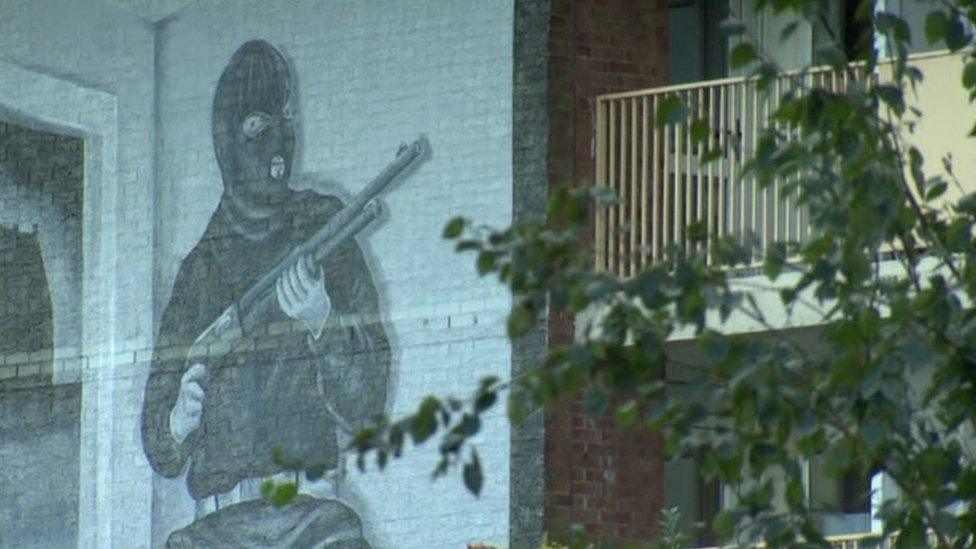
- Published13 October 2015
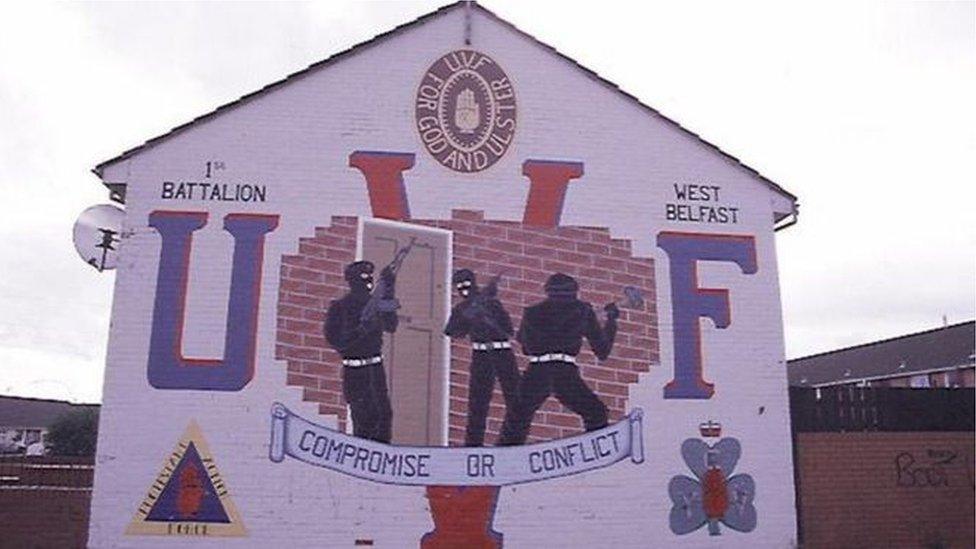
- Published12 October 2015
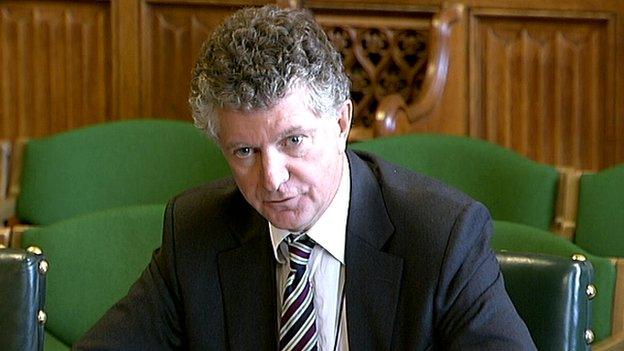
- Published8 October 2015
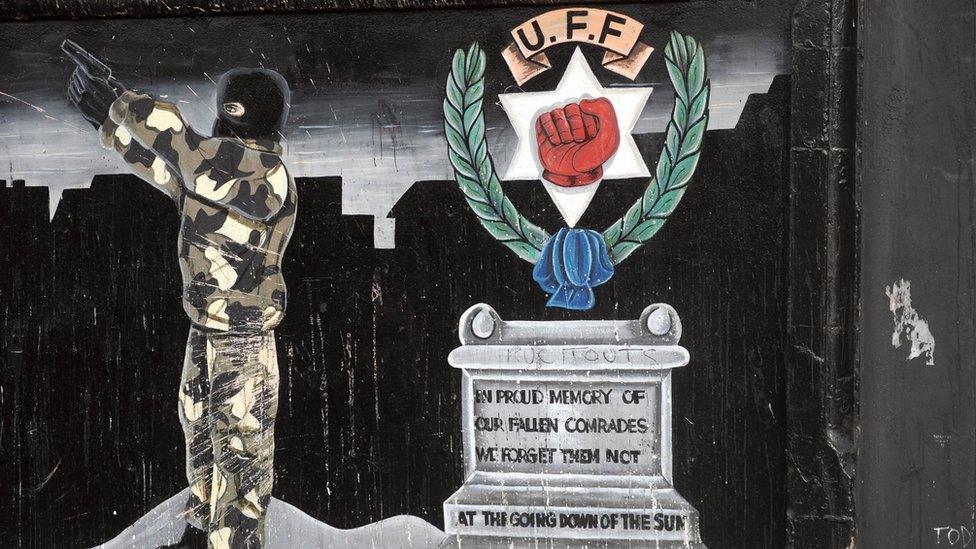
- Published22 June 2011
- Published8 September 2014
